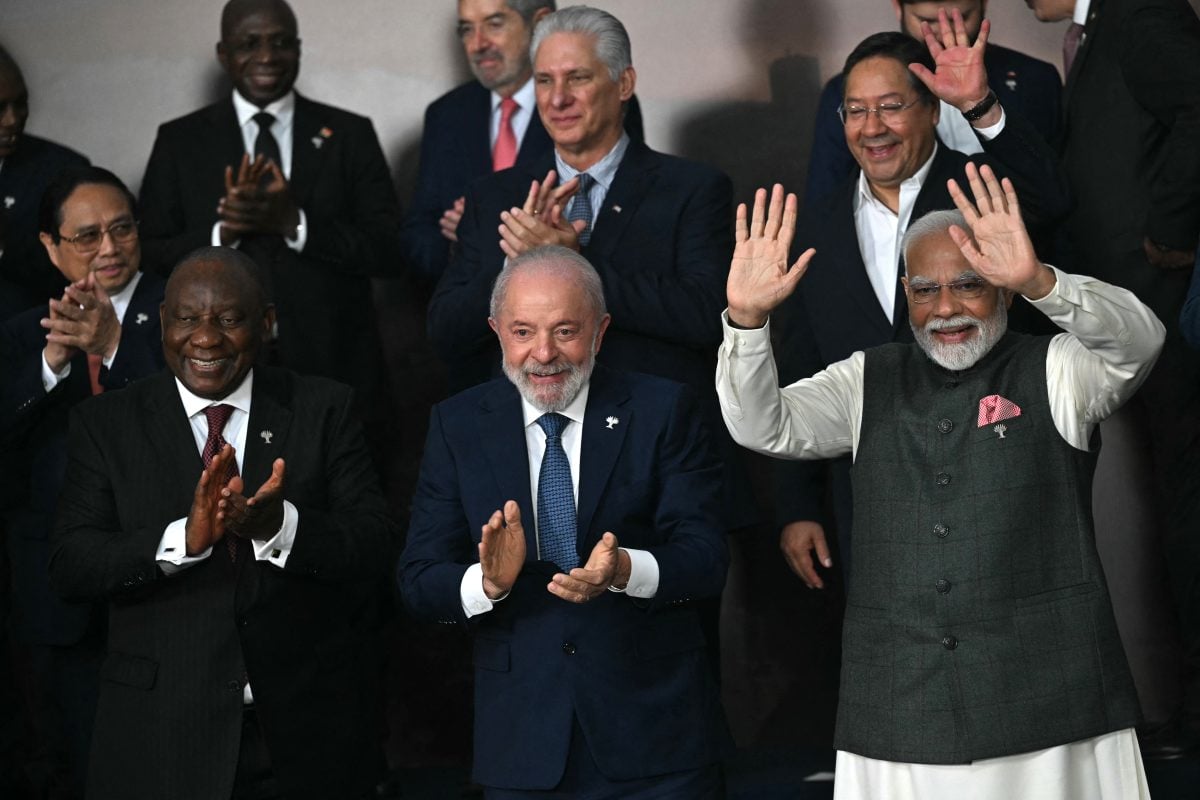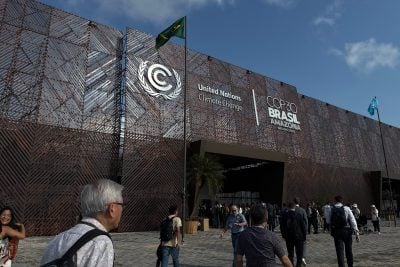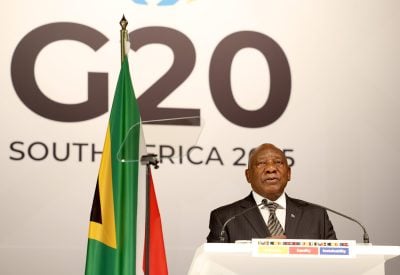Within weeks of assuming the US presidency earlier this year, President Trump had waded into South Africa’s domestic politics.
In May, a week after granting refugee status to nearly 60 Afrikaners, Trump doubled down when he ambushed South Africa’s president Cyril Ramaphosa with claims that white farmers in the country were being killed and persecuted in an extraordinary White House showdown.
From August South African goods bound for export to the United States have been subject to a 30% tariff, the highest rate currently effective on the continent. Trump linked that decision to these allegations.
It is not just South Africa that has been hit with tariffs for political reasons. Brazil, with which the US runs a trade surplus, has also been under fire from the White House as a result the prosecution of former president Jair Bolsonaro, a right-wing populist with whom Trump sympathises. In September Bolsonaro was sentenced to 27 years in jail after being convicted of plotting a coup to prevent the incumbent president, Luiz Inácio Lula da Silva, from taking office – something which Trump has branded a “witch hunt,” while drawing parallels with his own legal troubles in the aftermath of the 2020 US election.
Trump cited Bolsonaro’s case as a reason for the US imposing a 50% tariff on Brazilian goods in July, with the US government also imposing travel bans on the judges overseeing the case.
The increasingly ideological approach to US foreign policy has also snared India. Tariffs on the long-term US ally were ramped up to 50% in August, ostensibly because the country continues to buy Russian oil, although some analysts have suggested that India’s failure to clinch an interim trade agreement with the US due to its longstanding agricultural protectionism has also angered Trump.
The ideologically inspired tariff regime raises difficult questions in Africa and globally. What are its implications for the continent? And can greater “South-South” cooperation shield African economies from the worst consequences of Trump’s tariffs?
Tariffs as a geopolitical weapon
Beyond shaping policy towards foreign countries on ideological grounds, many analysts suspect that Trump is attempting to make a serious strategic point in his treatment of the world’s middle powers such as South Africa and Brazil.
Indeed, an increasing number of African economies and emerging markets around the world are looking for alternatives to an economic and political architecture they believe is unfairly dominated by the West.
Some are developing nascent plans around de-dollarisation or alternative trading structures centred on new institutions such as the BRICS bloc, of which three African countries are currently members. Trump has threatened consequences for both BRICS members and countries that pursue dedollarisation.
Mariano Aguirre Ernst, associate fellow of the international security programme at the Chatham House think tank in London, has argued that Trump’s politicisation of tariffs is “a clumsy reaction to the global trend towards reforming the international system for which the US wants to punish BRICS countries”.
Responding to the tariffs imposed on Brazil in July, Ernst said that “Washington is using Brazil to send a warning to other countries – particularly other BRICS countries like South Africa and India – on issues such as controlling digital communications, using alternative currencies to the US dollar in trade transactions, and relations with China.”
Galvanising opposition
Menzi Ndhlovu, senior country risk analyst at the Signal Risk consultancy in Johannesburg, says that South Africa and other African nations have been brought politically closer to countries, including Brazil, that have reason to feel similarly aggrieved at their treatment by the US.
“We are now returning to a period where Global South countries have collective grievances against the United States, and we are already seeing countries start to mobilise in response to these grievances,” Ndhlovu tells African Business.
“I would not be surprised if we start seeing a coalition of the aggrieved come around and start to build an international trading network in an attempt to insulate themselves from some of the haphazard actions of the United States,” he adds.
“That is not to say that the United States will be completely abandoned – it is too important to the global economy – but I think that we are going to start seeing some collective measures to try and counter the impact of the politicisation of tariffs.”
Shortly after Trump ramped up tariffs on India in August, President Narendra Modi joined China’s President Xi Jinping and Russia’s President Vladimir Putin in a warm embrace at a regional security conference – a choreographed handholding perceived by many as a direct riposte to the US.
Daniel Silke, a political economy analyst based in Cape Town, tells African Business that “contrary to what the Trump administration would like, which is the weakening of the BRICS and the weakening of the Global South in terms of its camaraderie, tariffs are likely to have the opposite effect and increase trade synergies between countries hit by tariffs.”
US – and Trump – cannot be ignored
Despite the increasing political will for increased trade between Global South countries, Ndhlovu is sceptical that this can provide the answer, at least in the immediate term.
“Countries in the Global South tend to have very similar trade patterns and goods offerings. For example, Brazil is a major coal exporter – Africa is also a major coal exporter. Brazil is a major exporter of metals and agricultural products – so is Africa,” he explains.
“We run into similar problems with India as well. As a result, such countries are natural economic competitors and there is not much scope to exchange much between one another,” Ndhlovu says.
“Whereas with the US and other Global North countries, they are predominately orientated around services and so there is a lot more scope to trade with them than with other partners in the Global South.”
Silke similarly notes that “while the foundations are there for enhanced trade between Global South countries, it is difficult to say what the specific instruments for that trade currently are.”
Ndhlovu suggests that efforts to make African economies more resilient to external shocks such as Trump’s tariffs would be better focused in the near-term on increasing manufacturing as a percentage of GDP and developing stronger, more diversified domestic markets.
US attempts to influence the domestic affairs of emerging powers such as South Africa and Brazil certainly appear to have brought these countries closer together politically thanks to the existence of these “collective grievances”.
However, finding collective solutions to these problems is extremely complicated, at least in the short term, as a
result of entrenched American political and economic power.
“It is important to recognise how crucial the US is to the world economy – that is going to complicate any response,” Ndhlovu says.
“As much as Global South countries are plotting in the background, they are also trying to appease Trump as
much as possible. It is a very, very fine balance.”
Want to continue reading? Subscribe today.
You've read all your free articles for this month! Subscribe now to enjoy full access to our content.
Digital Monthly
£8.00 / month
Receive full unlimited access to our articles, opinions, podcasts and more.
Digital Yearly
£70.00 / year
Our best value offer - save £26 and gain access to all of our digital content for an entire year!

 Sign in with Google
Sign in with Google 



